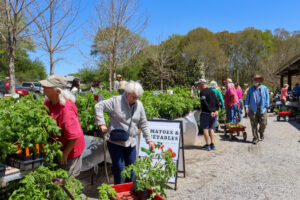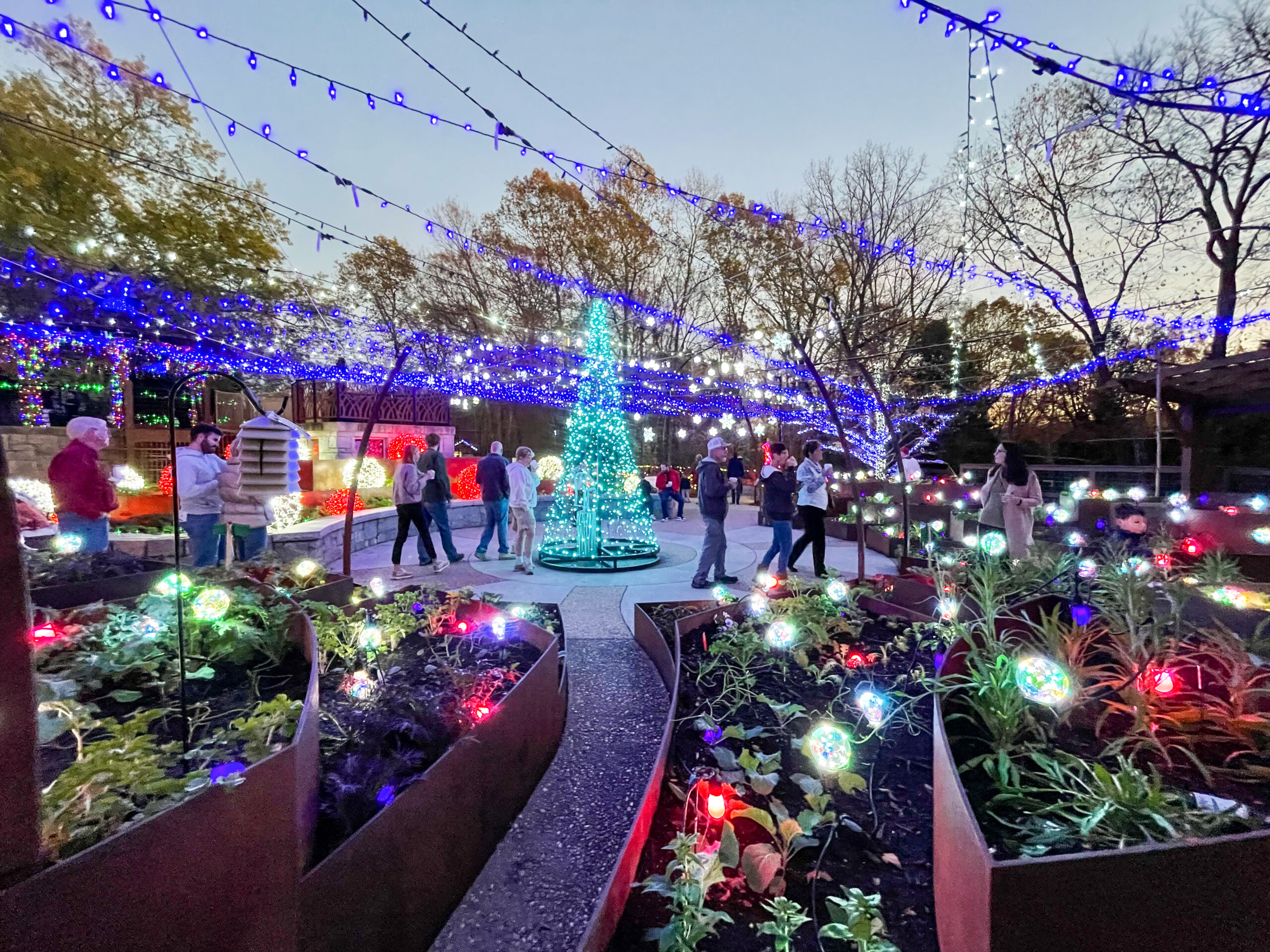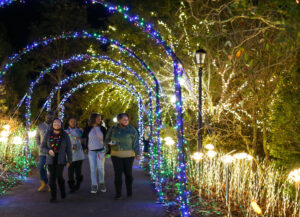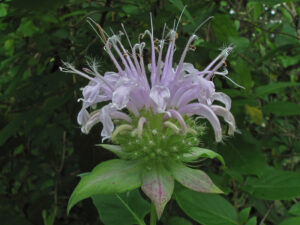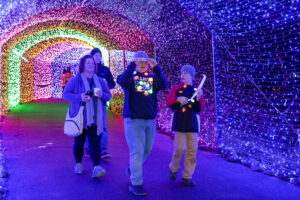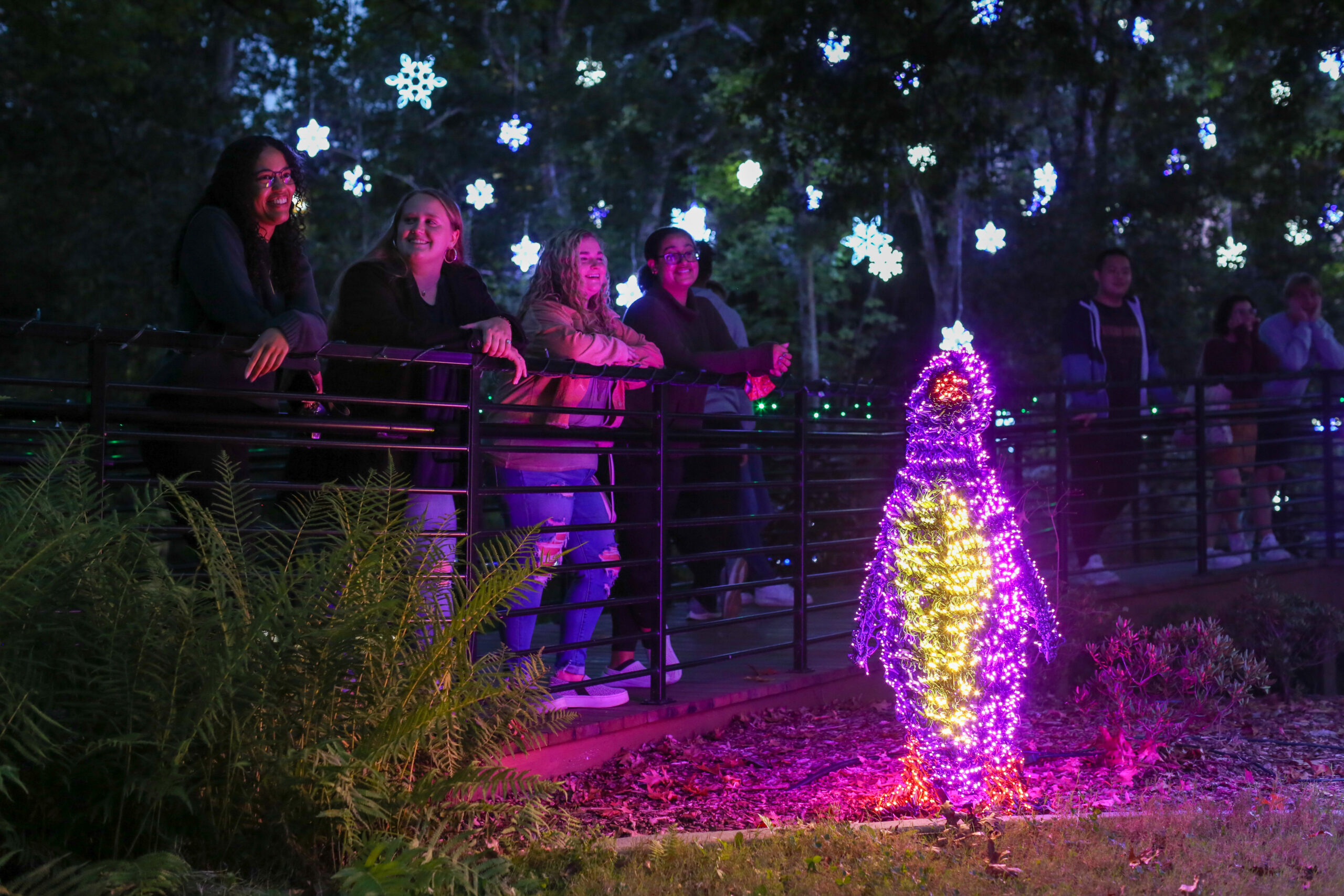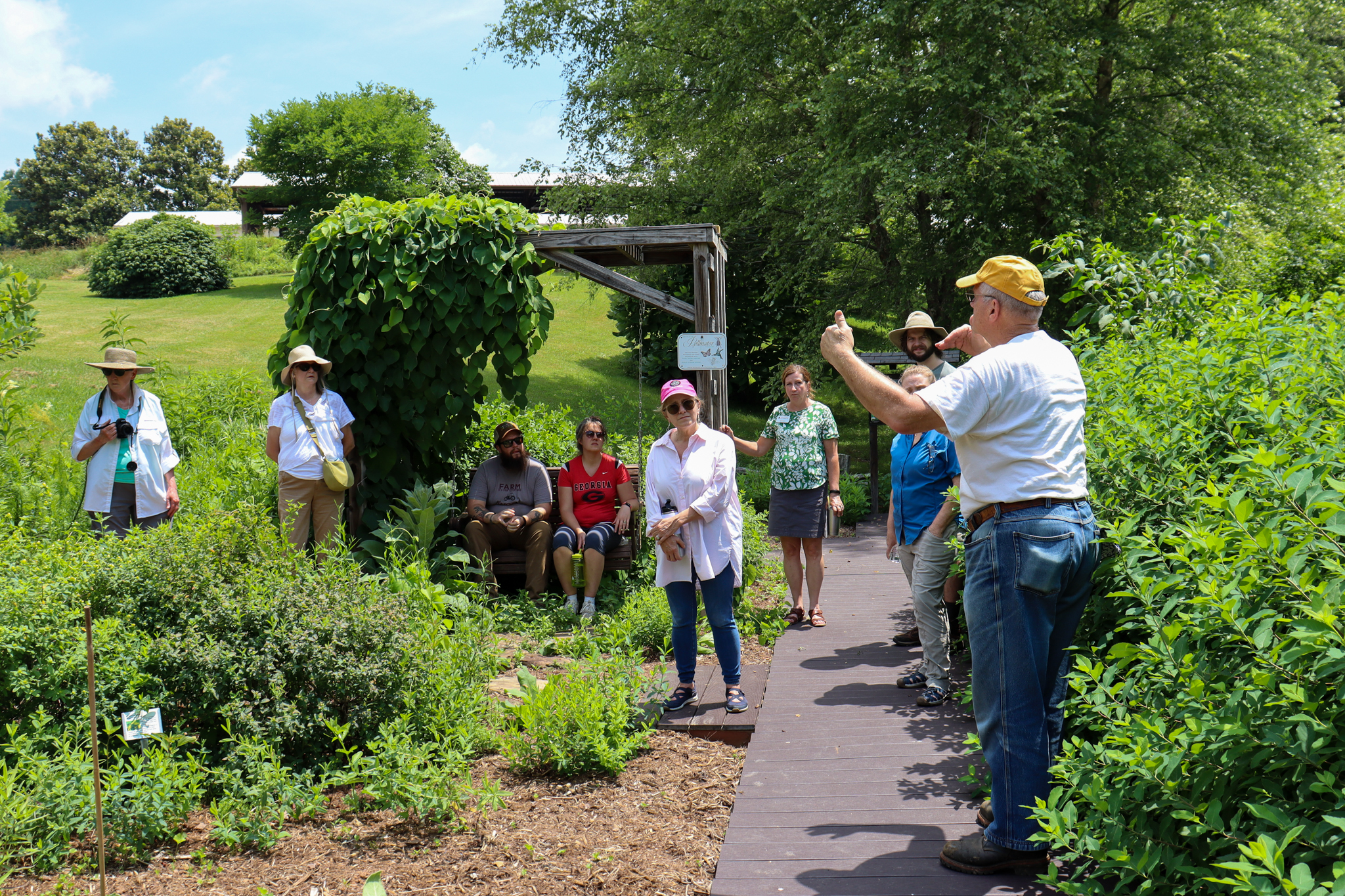The State Botanical Garden of Georgia at the University of Georgia recently announced the winners of its 2023 Student Art Competition.
The competition, funded by The J.A. and H.G. Woodruff, Jr. Charitable Trust, is open to students in 9th grade and above, including college students, attending school full- or part-time in Georgia.
This competition is sponsored to select original artwork that may be used to create signature items for sale at the State Botanical Garden of Georgia at UGA gift shop, such as note cards, T-shirts, scarves and mugs. Winning artwork may also be used on the garden website, brochures and promotional materials.
This year’s winners are:
1st place – Sadie Pijanowski, University of Georgia
Sadie Pijanowski’s work is entitled “Scenes of the Garden.” She said the State Botanical Garden at UGA is one of her favorite spots on the University of Georgia campus, and she visits frequently to enjoy the calming and beautiful scenery. Her work was created as a digital version of her usual painting style.
“My artistic practice focuses on flora and fauna, especially those native to Georgia, and there is always a wealth of inspiration in the gardens,” Pijanowski said. “This work is a reflection of gratitude for the gardens and the vast beauty of Georgia’s natural landscape.”
2nd place – Sarah Love, University of Georgia 
Sarah Love’s artwork, entitled “Dispersion,” was inspired by nature, contrasting textures of soft, elegant wildflowers with hard, sharp pinecones.
“Every plant has its own method of dispersing its seeds in order to produce successful seedlings,” Love said. “Pine trees grow pinecones to protect their seeds from predators, giving them a chance to survive. Wildflowers disperse their seeds with the winds or wandering wildlife.
“In the end, they all end up on the forest floor together. This also correlates to our relationships with others and our environment. We all have different paths toward conservation and preservation, but the goal is to all reach the same endpoint—protecting the natural world around us.”
3rd place – Keller Mclaughlin, University of Georgia
“Daisy Dreams” by Keller Mclaughlin is inspired by the vibrant springtime blooms in Athens.
Mclaughlin visited the State Botanical Garden at UGA and was blown away by the flowers’ colors, shapes and form. She hand-painted the flowers, then digitized them and created a repeating pattern.
“Each year, I am so impressed with the wonderful art competition submissions we receive,” said the garden’s director, Jenny Cruse-Sanders. “The State Botanical Garden’s core values include that the garden must engage, nurture and lift our spirits, touch hearts and stimulate our thinking. You can see the influence of the garden’s beautiful spaces in the work submitted in this year’s art competition, and I thank every student who submitted their artwork.”
Honorable mentions for this year’s competition include:
- Chantelle Chapman, “Endangered Spring”
- Jaci Davis, “Swallowtail on a Lantana”
- Chinmayi Shukla, “The Gifts of Georgia”
For more information about the State Botanical Garden of Georgia, a unit of UGA Public Service and Outreach, visit botgarden.uga.edu.
Writer: Laurel Clark, laurel.clark@uga.edu





